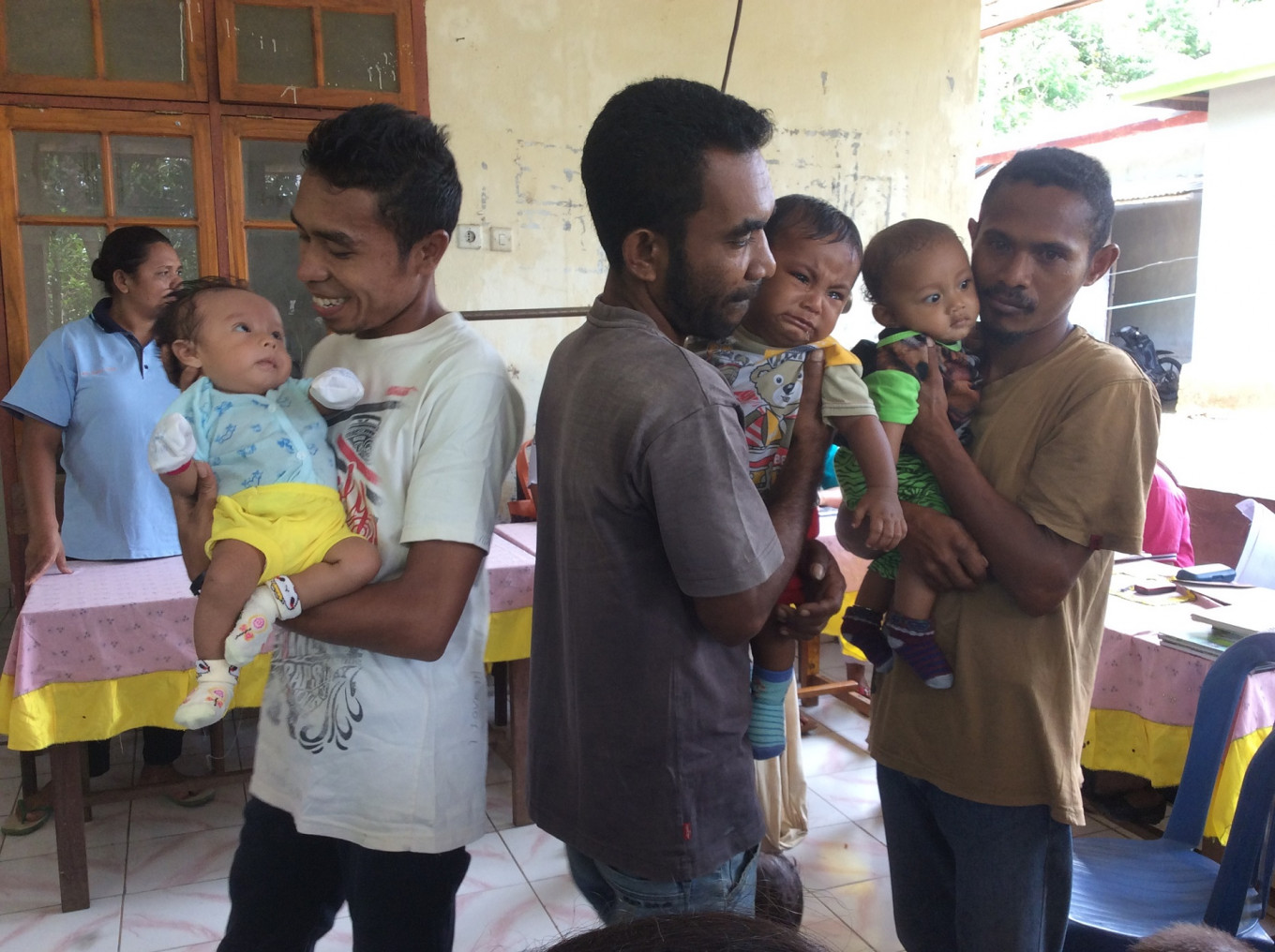Popular Reads
Top Results
Can't find what you're looking for?
View all search resultsPopular Reads
Top Results
Can't find what you're looking for?
View all search resultsCOVID-19 must not compromise fight against stunting
Without any action and investment in children’s health today, the vision of developing a high-income nation will remain a dream.
Change text size
Gift Premium Articles
to Anyone
Stunted children tend to find studying harder than their peers who enjoy sufficient nutritional intake. They are also likely to endure slow physical and mental development, reduced productive capacity and poor health, as well as a higher risk of developing noncommunicable diseases.
Nearly 7 million Indonesian children under the age of 5 affected by stunting, but the rate has declined from 30.8 percent in 2018 to 27.6 percent in 2020. According to the National Medium-term Development Plan for the 2020-2024 period, Jokowi aims to reduce stunting to below 20 percent in the second term of his government.
However, the unprecedented pandemic greatly affects the plan. The Indonesian government, just like others, is forced to pivot and pay full attention to addressing COVID-19. In response to the sudden crisis, the government has rearranged budget spending to handle the pandemic.
Even before the pandemic, many people living on the edge suffered hunger. Lurking behind COVID-19 is news that is potentially even more devastating for those with the fewest resources and options. More and more Indonesian children are becoming malnourished due to the deteriorating diets, family income loss and overburdened health facilities due to efforts to mitigate the transmission of COVID-19.
Unless swift action is taken, it is extremely tough to even maintain the current rate of stunting within the next four years of Jokowi’s era. The good news is, Health Minister Terawan Agus Putranto has affirmed that the program related to the elimination of stunting will remain a priority amid the pandemic.
The government plans to encourage stunting prevention through improving protection programs run by the Social Affairs Ministry, such as the Family Hope Program (PKH) and noncash food assistance (BPNT). The government has allocated Rp 695.2 trillion (US$47.48 billion) for its COVID-19 response, of which Rp 203.9 trillion has been set aside for social protection, including the PKH and the staple food program, which is part of BPNT.
The government disbursed Rp 32.65 trillion through the PKH to 10 million families last year and will continue to increase the allocation to anticipate the economic impact of COVID-19.
The beneficiaries now can claim the cash every month, unlike in the past, when the aid was transferred every three months.
The BPNT is given to beneficiary families every month through an electronic account mechanism.
The non-cash assistance can only be used to purchase food at e-warung merchants. The number of beneficiaries in the staple food program will rise from currently 15.2 million to 20 million households, and the aid is raised from Rp 150,000 to Rp 200,000 per month in anticipation of the impacts of the pandemic.
However, there are still numerous issues to tackle. As many as 25 million children under-5 are deprived of basic immunization, vitamin A supplementation, growth monitoring and other limited routine services due to limited health services during the pandemic.
This could undermine efforts to bring down the rate of stunting in children. For this reason, the economic recovery program should be accompanied by the direct provision of maternal and child health services.
First, basic health facilities, especially integrated health services posts (Posyandu), should remain open while enforcing strict health protocol. In this pandemic, 83.9 percent of basic health services in the country are not running optimally.
Maternal and child health services should be the main priority of local governments, in accordance with the World Health Organization’s recommendations for the maintenance of essential health services. Pregnant mothers and children under 5 need access to key health services, including basic immunization, breastfeeding, dietary diversity, drinking water and sanitation and early childhood education. Even before the pandemic, convergence of these key services was low in Indonesia.
Second, mobile Posyandu can be a good alternative. Community health workers can be the heroes of this program; doing door-to-door visits to fulfil all maternal and child health services. Mobile Posyandu intervention includes the provision of counselling on breastfeeding and on feeding infants and children.
Third, the media could take part in the fight against stunting amid the pandemic. While all eyes are on how to beat COVID-19, people may neglect other equally important issues, like stunting in children.
The media can remind the public of the unsolved malnutrition problems and encourage all stakeholders to act to save the future generations.
From where we stand, improving public health will not be easy, but if we do not act and invest in children’s health now, the vision of developing a high-income nation will remain a dream.
In the context of the fight against COVID-19, providing essential healthcare services to protect our young generation from malnutrition is equally important to developing a vaccine that will protect the entire nation from the novel coronavirus.
-- The writer is a general practitioner at a mother and child hospital in South Jakarta with a master’s degree in public health from Harvard University in the United States.










